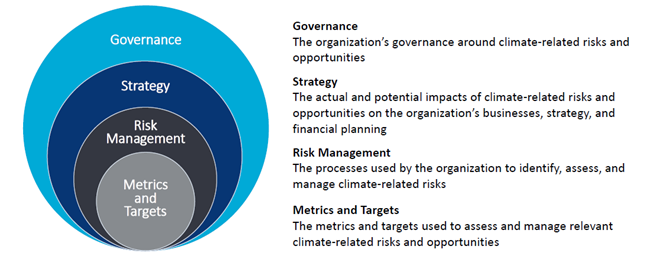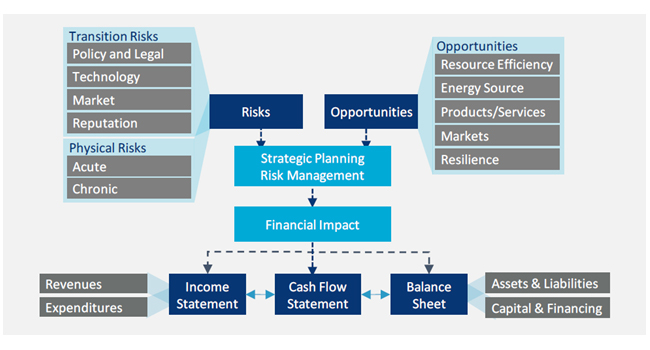



Art. 2086 of the Italian Civil Code, as amended by the Crisis and Insolvency Code in March 2019, obliges company directors, with the provision of penalties, to activate an organizational, administrative and accounting structure ("ORAMCO" structure) adequate to the size and nature of the company, suitable to manage and overcome situations of crisis and loss of business continuity.
In this regard, there have already been some judicial rulings regarding the respective adequacy: the characteristics of the structures are left to the discretion of the management, which must however assume them with criteria of legitimacy and rationality, in order to allow:
Currently, environmental and in particular climatic imbalances are assuming very significant dimensions, as highlighted, among others, in the last World Economic Forum in which these risks occupied the first three places in the ranking by probability, and four positions among the first six in the ranking by impact.
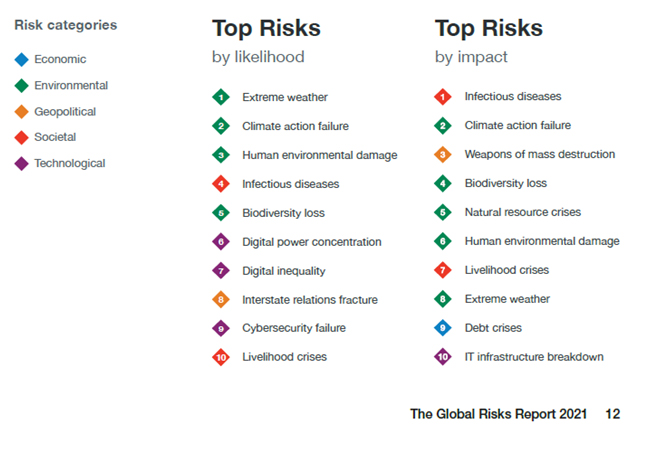
Within these problems, the climatic one has acquired particular importance, as evidenced both by scientific documents (e.g. the latest IPCC report), and by the progressive diffusion of anomalous weather events such as floods, fires, high temperatures, heat waves, rising sea among the main ones.
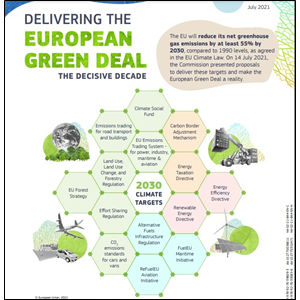
The space already found by this theme in the speeches of the institutional and political leaders at the international level, such as the corrective pathways started (eg. Green Deal UE) and the resources already allocated and being prepared (eg. PNRR, FIT for 55) testify the awareness of the need to initiate corrective measures, which however are not yet managed with the necessary urgency and determination.

Therefore, a context of strong instability has arisen with high probability of seeing important changes even in the short term and risks of suffering unexpected and unpredictable situations (eg lockdown following Covid).

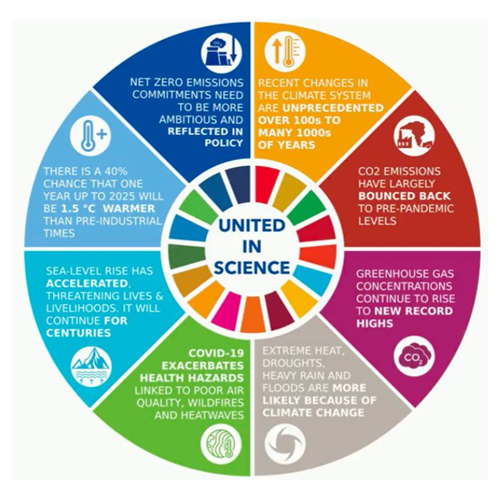
The main risks associated with this context include physical risks (e.g. destruction of existing assets with extreme weather events), transition risks (change in the value of assets in the path for decarbonisation), and liability risks (requests for compensation for conducts not previously sanctioned).
SwissRe: analysis of damage from extreme climatic events:
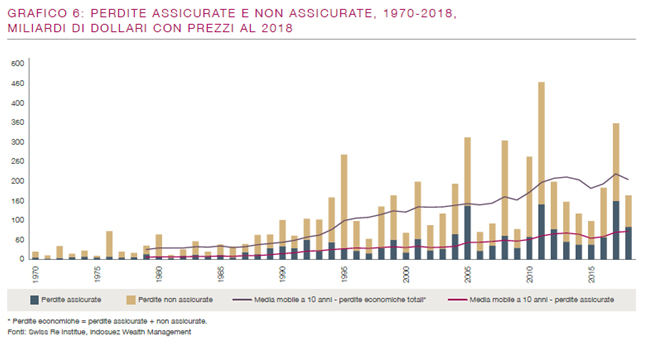


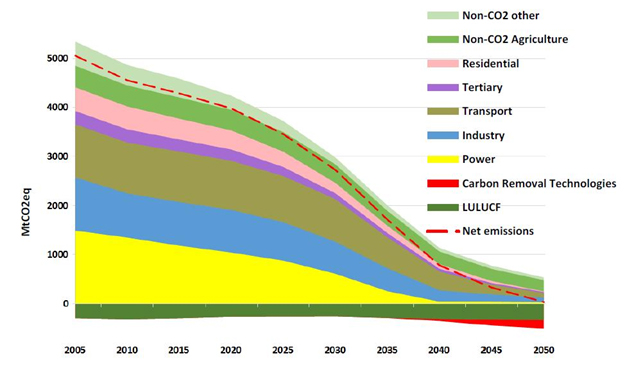
These risks can have significant consequences in the management of companies and make their continuity problematic. Therefore, they must be carefully managed in order to limit the risks of the existing environmental and energy transition path and possibly take advantage of the opportunities connected to it, including:
